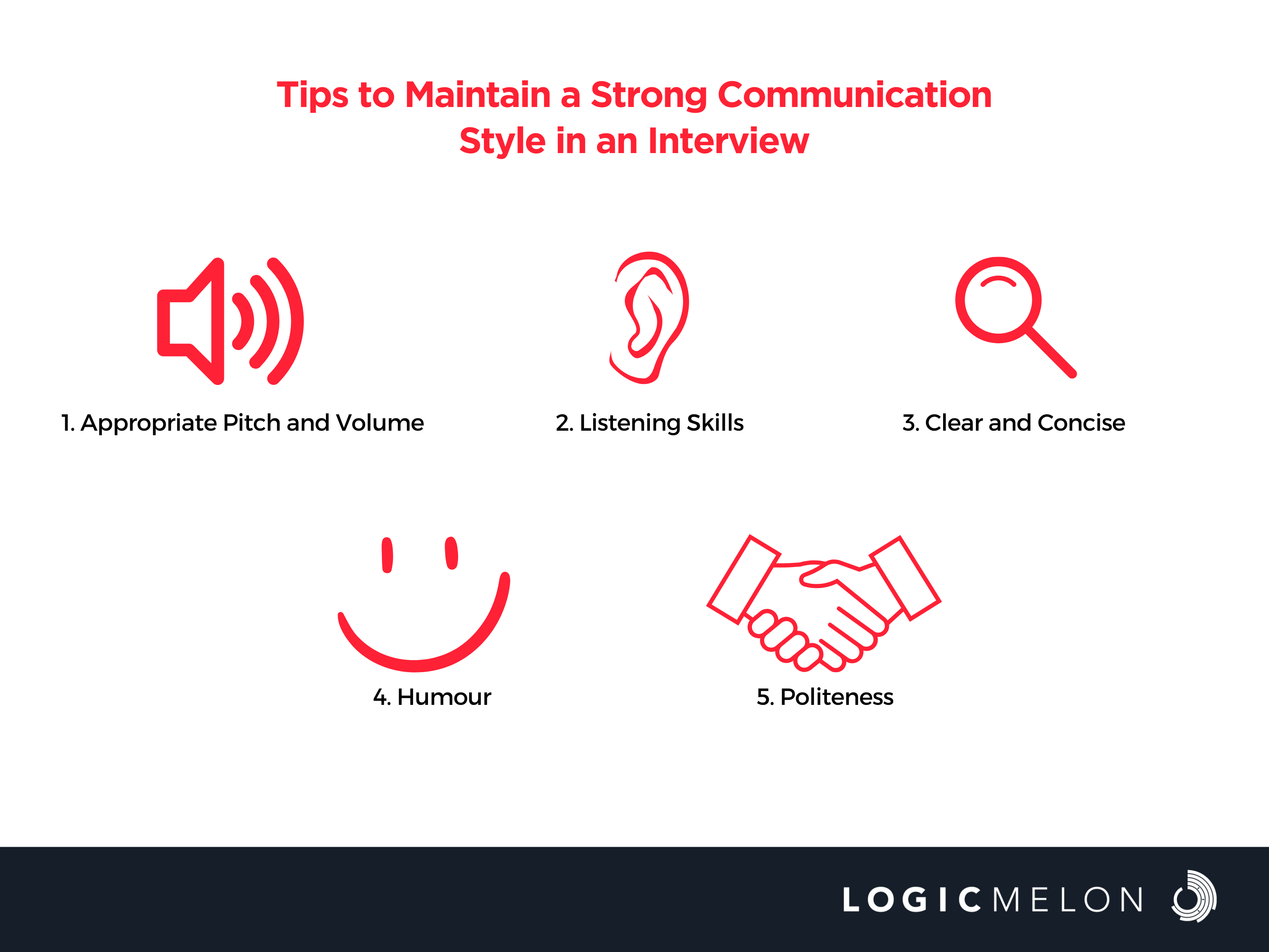Maximising Conversions to Interview – Communication Style and Frequency
Interviews can be quite nerve-wracking for both hiring managers and candidates alike. One key metric that recruiters often use to measure the success of the interview process is the interview-to-offer conversion rate. Understanding the different communication styles and frequencies can greatly enhance your chances of acing an interview. So, let’s dive in and explore how you can confidently communicate during an interview and showcase your qualifications.
The interviewer uses job interviews to assess a candidate’s communication skills and their ability to effectively express ideas in the workplace. While good communication skills are valuable in many professions, some jobs specifically require candidates with strong communication abilities. In this blog, we’ll guide you on how to convert successfully during an interview by adopting the right communication style and frequency.
1. Communication Frequency
Communication frequency refers to how often you engage with interviewers during an interview session. It reflects your level of interest and influence in a given conversation. Communication frequency encompasses both interview questions and interview feedback.
2. Interview Questions
Crafting concise and precise answers is crucial during an interview. Ideally, your responses should range between 30 seconds and 2 minutes. Well-designed interview questions are essential for evaluating a candidate’s potential and suitability for a specific role. As a job candidate, preparing your responses in advance will enable you to engage effectively during the interview.
3. Interview Feedback
After the interview, it’s important to provide appropriate feedback to candidates with poor communication skills. Offering constructive feedback on their application and an accurate evaluation of their interview performance is essential. As a job candidate, demonstrating good communication skills during an interview is a vital step towards securing the position. During the interview feedback stage, interviewers summarize the candidate’s answers and assess specific skills.
4. Communication Style
Communication style refers to the various ways people communicate. It encompasses different styles such as passive communication, aggressive communication, passive-aggressive communication, and assertive communication.
A passive communicator tends to speak less frequently, often relying on non-verbal cues like crossing their arms. Aggressive communicators, on the other hand, exude confidence and frequently assert their ideas. Passive-aggressive communicators may feel that their ideas are not accepted and may express their frustrations indirectly. Assertive communicators are adept at articulating and defending their opinions while respecting others. Here are some tips to maintain a strong communication style throughout an interview:

1. Using Appropriate Pitch and Volume
Maintain a consistent tone and volume while speaking to create a positive impression. Opt for a medium volume that is neither too loud, which could be perceived as irritating or arrogant, nor too soft. A pleasantly pitched tone will help the interviewer better understand your responses.
2. Listening Skills
Active listening is crucial for providing effective responses. It’s important to listen attentively to understand the interviewer’s intentions and respond appropriately. Demonstrate your active listening skills by allowing the interviewer to complete each question and statement before responding.
3. Clear and Concise
The three Cs of effective communication are clarity, conciseness, and consistency. Keep your answers focused and straightforward. Even when a question requires a detailed response, strive to express yourself using the fewest words possible. While communicating clearly, be honest about your strengths and weaknesses and discuss your improvement plans.
4. Humour
Injecting light humour during an interview can be a valuable form of verbal communication. Humour helps boost morale and creates a cheerful atmosphere. It also helps alleviate tension and enables people to establish connections.
5. Politeness
Remember to greet everyone in the room when you arrive and leave, and introduce yourself politely. Non-verbal cues such as a smile, an upright posture, and a firm handshake from the interviewer leave a positive impression. As a candidate, you can also greet the interviewer with a firm handshake at the beginning of the interview.
Frequently Asked Questions
1. How can you ensure you haven’t misunderstood the instructions?
Actively listen and avoid making assumptions. To prevent misunderstandings during conversations, be clear, concise, and use a pleasant tone that suits the situation.
2. Why do employers ask candidates to describe their communication skills?
Employers ask about communication skills to gauge a candidate’s suitability for the position. This question helps them determine if you possess the necessary skills for success. Testing communication skills is a great way for organisations that value honest communication to assess potential employees.
3. How long should interview answers be?
The length of an interview answer depends on the context of the question but generally ranges from 30 seconds to 4 minutes. Respond to questions concisely and straightforwardly. Avoid sharing unnecessary details that might lengthen your answers unnecessarily.
Closing Thoughts
Now that you are familiar with different communication styles and frequencies, it’s time to maximize your interview success. Communication is an essential aspect of every job, whether you’re an employee or an employer. It cannot be ignored or avoided. It is a valuable interpersonal skill that professionals develop throughout their careers. When preparing for an interview, consider incorporating the appropriate communication style. Your communication style plays a vital role in an interview and helps identify your interest and ability to communicate effectively when onboarded.
So, go ahead, ace that interview, and showcase your excellent communication skills!
LogicMelon
Award-winning recruitment software that will find, attract, hire and analyse the way you want to work. At LogicMelon, we have experienced software recruitment marketing specialists to help you build effective recruitment solutions supported by the best customer service you’ll find anywhere!
Email: sales@logicmelon.com or call LogicMelon (UK) +44 (0) 203 553 3667 (USA) +1 860 269 3089
Recruitment Data Visualisation: Everything You Must Know
As a recruiter, you go through a lot of information daily. Recruitment data visualisation simplifies the complex data, making it easier to understand and act upon.
The Role of Soft Skills in Leadership Recruitment
In leadership development, soft skills are essential for identifying individuals who can not only manage but also inspire and guide teams to success.
ATS and CRM in Talent Acquisition
By utilising the strengths of ATS and CRM, organisations can create a comprehensive talent acquisition strategy that combines relationship building with an efficient hiring process.


